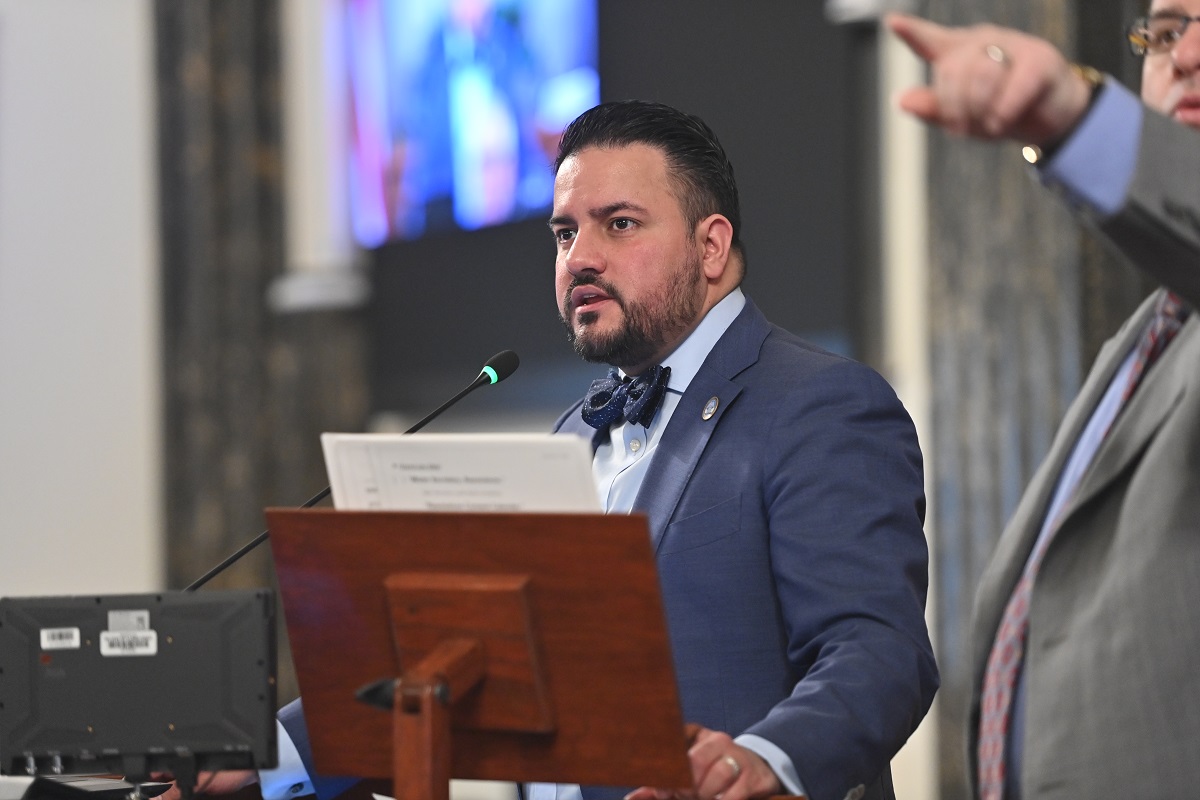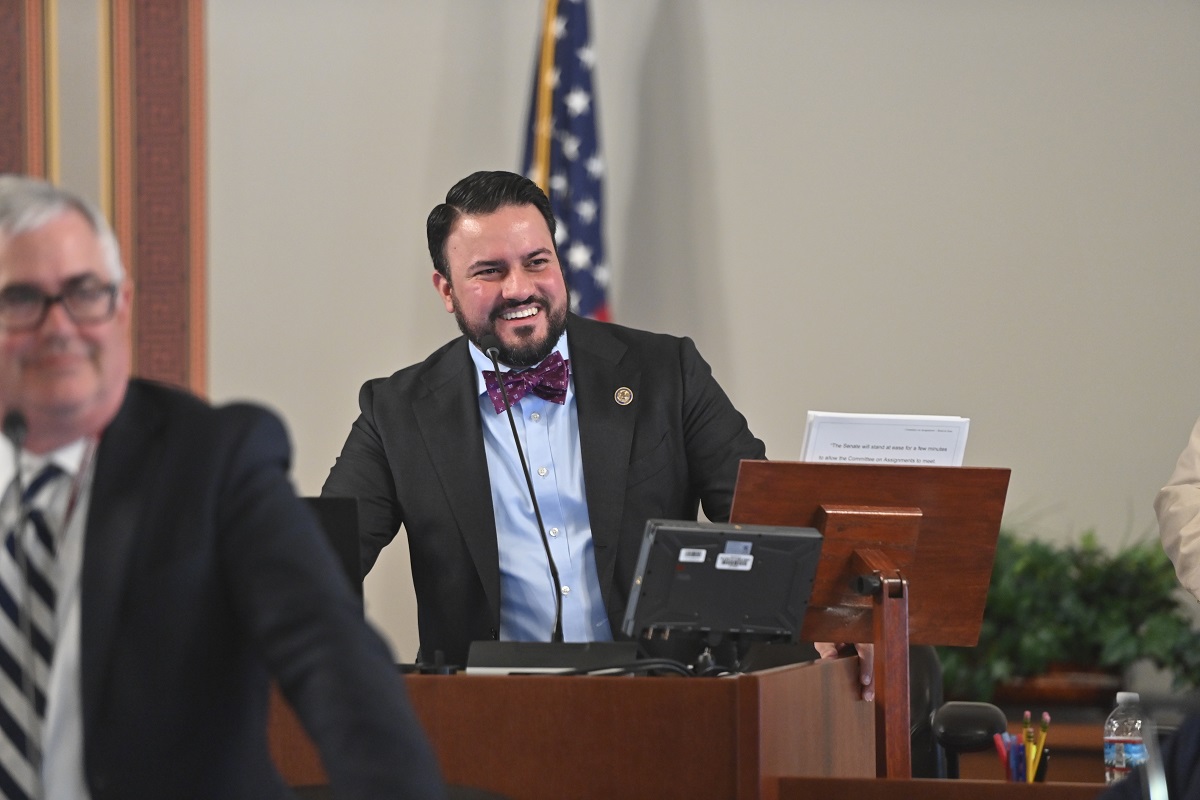Aquino presenta el 10 de agosto la feria anual de salud de regreso a clases
- Details
- Category: News
 Los padres y las familias que necesitan útiles escolares, servicios de salud, programas para jóvenes y otros recursos de la comunidad están invitados a asistir a la feria anual de salud de regreso a la escuela del Senador Estatal Omar Aquino y la Representante Estatal Lilian Jiménez el sábado 10 de agosto.
Los padres y las familias que necesitan útiles escolares, servicios de salud, programas para jóvenes y otros recursos de la comunidad están invitados a asistir a la feria anual de salud de regreso a la escuela del Senador Estatal Omar Aquino y la Representante Estatal Lilian Jiménez el sábado 10 de agosto.
“En la preparación para el inicio del año escolar, el acceso a recursos como útiles escolares, exámenes físicos escolares y apoyo a la vivienda son esenciales, y nuestra feria anual de regreso a la escuela reúne a estos importantes servicios en un lugar accesible para que sea más fácil para los padres a prepararse para el nuevo año escolar,” dijo Aquino (D-Chicago). “Animo a todas las familias a unirse a nosotros para este evento divertido y gratis.”
El evento se realizará el sábado 10 de agosto de 10 a.m. a 2 p.m. en Prosser Career Academy, ubicado en 2148 N. Long Ave. en Chicago. Habrá comida y refrescos hasta agotar existencias.
Read more: Aquino presenta el 10 de agosto la feria anual de salud de regreso a clases
Aquino leads new law to strengthen Medicaid system, improve reimbursement
- Details
- Category: News
 Illinois will boost reimbursement for critical health services supporting vulnerable children and families, thanks to a new law led by State Senator Omar Aquino aimed at strengthening the Medicaid system.
Illinois will boost reimbursement for critical health services supporting vulnerable children and families, thanks to a new law led by State Senator Omar Aquino aimed at strengthening the Medicaid system.
“In Illinois, we are advancing equity by investing in the residents and health care providers who deserve a better system that meets their needs,” said Aquino (D-Chicago). “These much-needed rate increases will support safety net hospitals, children’s health centers, mental health providers and programs that ensure the health and well-being of vulnerable children and families across our state.”
The new law makes significant improvements to reimbursement rates and add-on payments to support the full spectrum of health care needs in Illinois, including increased funding for psychiatric care, skilled nursing facilities, children’s community health centers, birth centers, prosthetics and orthotics, optometry services and safety net hospitals, which serve some of the state’s most vulnerable populations.
Read more: Aquino leads new law to strengthen Medicaid system, improve reimbursement
Aquino secures new child tax credit for Illinois families
- Details
- Category: News
 Under a measure championed by State Senator Omar Aquino, working parents in Illinois will be able to claim a state-level child tax credit on their income taxes starting next year.
Under a measure championed by State Senator Omar Aquino, working parents in Illinois will be able to claim a state-level child tax credit on their income taxes starting next year.
“Parents shouldn’t have to struggle to provide basic necessities to their children,” said Aquino (D-Chicago). “The child tax credit will help families put money toward things that are becoming even less affordable – like groceries and school supplies – during these inflationary times. The rising cost of living makes it even more vital to get this economic relief to folks who need it.”
House Bill 4951 – the Fiscal Year 2025 revenue package – includes $50 million for a new statewide child tax credit, something Aquino has been fighting for over the past several years. Beginning next year, parents eligible for the Illinois Earned Income Tax Credit with at least one child under age 12 will receive the child tax credit – equal to 20% of the state’s EITC in 2025 and 40% of the EITC in 2026.
Read more: Aquino secures new child tax credit for Illinois families
Aquino asegura crédito fiscal por hijos para familias de Illinois
- Details
- Category: News
 En virtud de una medida promovida por el Senador estatal Omar Aquino, los padres trabajadores de Illinois podrán reclamar un crédito fiscal estatal por hijos en sus impuestos a partir del próximo año.
En virtud de una medida promovida por el Senador estatal Omar Aquino, los padres trabajadores de Illinois podrán reclamar un crédito fiscal estatal por hijos en sus impuestos a partir del próximo año.
“Los padres no deberían tener que luchar para cubrir las necesidades básicas de sus hijos,” dijo Aquino (D-Chicago). “El crédito fiscal por hijos ayudará a las familias a destinar dinero a cosas que son cada vez menos asequibles, como los comestibles y el material escolar, en estos tiempos de inflación. El aumento del costo de vida hace que sea aún más vital conseguir este alivio económico para la gente que lo necesita.”
El Proyecto de Ley de la Cámara de Representantes estatal 4951 - paquete de ingresos del Año Fiscal 2025 - incluye $50 millones para un nuevo crédito tributario de hijos estatal, algo por lo que Aquino ha estado luchando durante los últimos años. A partir del próximo año, los padres que tengan derecho al crédito fiscal por ingreso del trabajo de Illinois con al menos un hijo menor de 12 años recibirán el crédito fiscal por hijo, equivalente al 20% del EITC estatal en 2025 y al 40% del EITC en 2026.
Los análisis de la ampliación en 2021 del crédito fiscal federal por hijos concluyeron que la prestación llegó al mayor número de familias trabajadoras en la historia de Estados Unidos. En Illinois, se atribuye la ampliación a la reducción de las tasas de pobreza infantil en más de un 45%.
Read more: Aquino asegura crédito fiscal por hijos para familias de Illinois
More Articles …
Page 6 of 13






